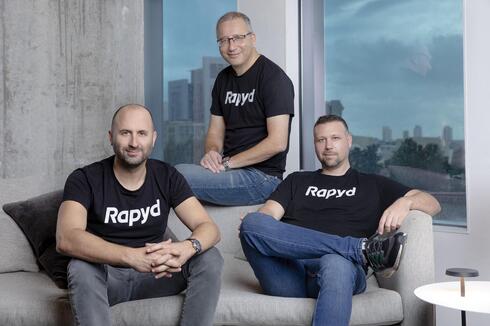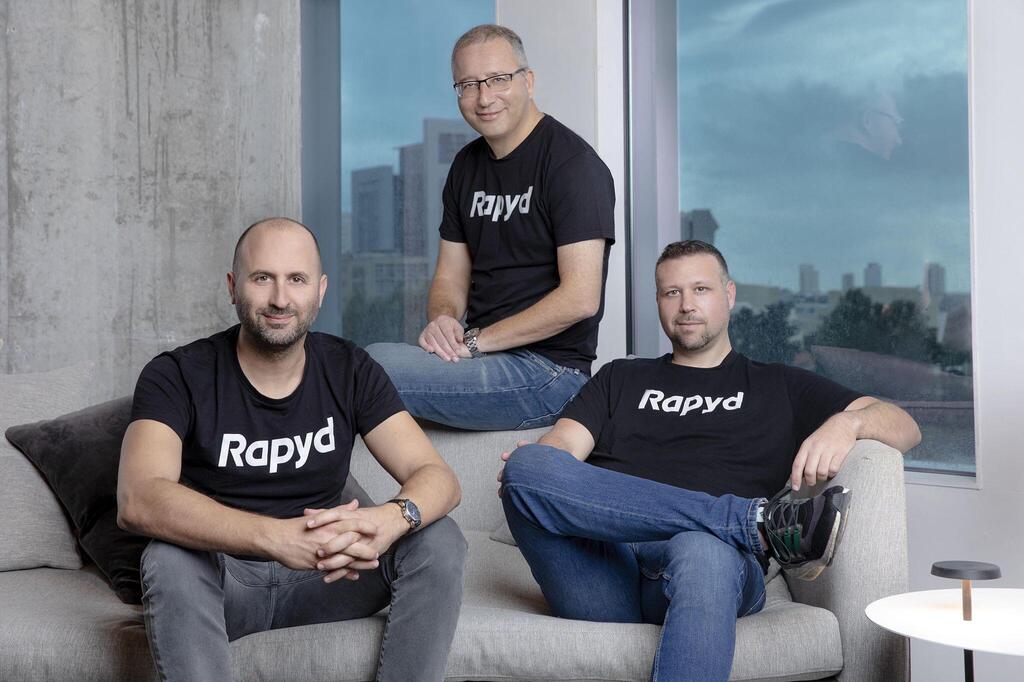
Revolut and Rapyd eye Israeli market with lean bank ambitions
Two fintech giants are in talks with the Bank of Israel as regulators weigh reforms to open the deposit market.
The Bank of Israel is currently in discussions with two international financial firms that intend to apply for a license to operate as lean banks, a status that would allow them to accept customer deposits and compete with traditional banks. This was revealed earlier this week by Daniel Hahiashvili, the Supervisor of Banks at the Bank of Israel, during an appearance at the Fair Value Forum at Reichman University in Herzliya.
Calcalist has learned that the most prominent company seeking a lean bank license is the British fintech and banking giant Revolut. The second is Rapyd, an Israeli-founded company that, until now, has primarily operated abroad. Rapyd provides international payment infrastructure for businesses and consumers, supporting bank transfers, cash payments, and digital wallets.
Should Israeli banks worry about competition from these fintech giants entering their most profitable domain? That depends largely on the speed at which the Bank of Israel and the Ministry of Finance issue approvals. Israeli banks have long profited from the wide gap between the almost zero interest they offer on deposits and the high interest they charge on credit, an imbalance the government is seeking to address, though with limited success so far.
Currently, the Banking Supervision Department is advancing a new framework that would enable non-bank entities to accept and manage customer deposits under a lean banking license. Though the process may take time, the Bank of Israel has already begun laying the groundwork.
Founded in 2015 by British-Ukrainian entrepreneur Nikolay Storonsky and software engineer Vlad Yatsenko, Revolut is valued at $45 billion, based on its August 2024 share sale. The digital-only bank serves 52 million customers across 50 countries but has yet to launch full banking services in Israel. Recently, Revolut appointed Uri Nathan, former CEO of Pepper, to lead its Israeli operations.
Revolut arrived in Israel in 2023 and received an identification code from the Bank of Israel, enabling it to begin integrating into the local financial ecosystem. This move allows Revolut to assign users a local account number and facilitate money transfers with Israeli banks. If granted a lean banking license, Revolut could begin offering interest-bearing deposit accounts, making its services more comparable to those of traditional banks. A similar strategy was employed by Discount Bank’s app PayBox, which offered 4% annual interest on monthly deposits.
Meanwhile, Rapyd, founded in 2015 by Arik Shtilman, Arkady Karpman, and Omer Priel, was briefly considered Israel’s most valuable private tech company in 2022, with a valuation of $15 billion. However, after cybersecurity firm Wiz was acquired for $32 billion in March 2025, Rapyd lost that title. Its current valuation, based on its February 2025 fundraising, is around $4.5 billion.
Rapyd is now working to establish a clearing infrastructure in Israel and has applied for a clearing license from the Israel Securities Authority. The company plans to offer small and medium-sized businesses credit card clearing services at rates lower than those of traditional credit card companies. If it also secures a lean banking license, Rapyd will be able to accept deposits from these businesses, significantly expanding its financial services footprint.
The lean bank license is one of the Bank of Israel’s primary tools to open up competition in a deposit market long dominated by traditional banks. Today, these banks benefit from offering low deposit interest rates, despite the Bank of Israel’s benchmark rate standing at 4.5%, and enjoy cheap capital that contributes to windfall profits, NIS 30 billion in 2024 alone, and NIS 7.7 billion in Q1 2025.
By contrast, alternative financial entities must raise capital at higher costs, either via bank loans or bond issuances. To level the playing field, an inter-ministerial committee of the Bank of Israel and the Ministry of Finance recommended in March that lean bank licenses be granted to a broader array of financial institutions.
The licenses would enable insurance companies, investment firms, credit card issuers, and other non-bank financial entities to offer deposit products, potentially at more attractive rates than traditional banks. This would lower their own funding costs and, in turn, increase competition both in lending and deposit-taking services.
Crucially, the Bank of Israel is not limiting eligibility to financial firms. Large real-sector companies, such as retail chains, could also be allowed to accept customer deposits by setting up dedicated subsidiaries.
Revolut and Rapyd declined to comment on their licensing efforts.
The Bank of Israel responded: “The Bank of Israel is leading a fundamental reform of the banking license process. The goal is to tailor licensing and supervision to the size of the banking entity. In cooperation with the Ministry of Finance and other stakeholders, we are working to reduce barriers to entry for new players. Several entities, domestic and international, have expressed interest in entering the Israeli banking sector. The Bank of Israel does not comment on specific entities.”














